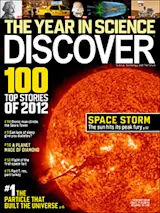The so-called psychiatrists' bible—the Diagnostic and Statistical Manual, or DSM—specifies when people should be given diagnoses of mental disorders, influencing everything from insurance reimbursement to legal definitions of mental illness in court. Last year, planned revisions to the fourth edition of the DSM, now 19 years old, triggered bitter public controversy and worries that psychiatric disorders will be misdiagnosed.
Revising the DSM is always contentious because there are few objective tests and often no physical signs of mental disorders. But the debates surrounding the upcoming DSM-5, published by the American Psychiatric Association, were particularly intense. The changes "will dramatically raise the rates of mental disorders and mislabel normal people as psychiatrically sick," wrote psychiatrist Allen Frances, who was chairman of the committee for the previous edition.
Frances and other critics say the planned DSM-5 goes too far in lowering the diagnostic thresholds for disorders like ADHD and depression. The British ...















